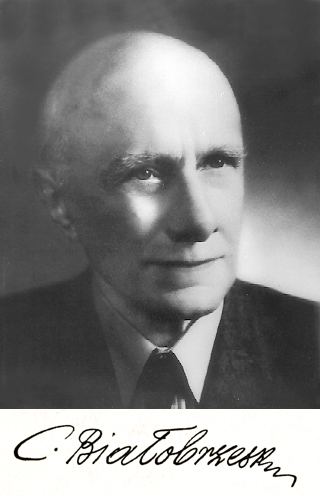|
Andrzej Grzegorczyk
Andrzej Grzegorczyk (; 22 August 1922 – 20 March 2014) was a Polish logician, mathematician, philosopher, and ethicist noted for his work in computability, mathematical logic, and the foundations of mathematics. Historical family background Andrzej Grzegorczyk's foundational family background has its origins in the Polish intellectual, religious, patriotic, and nationalist traditions. He was the only child to the Galician family of well-educated and wealthy parents, his father Piotr Jan Grzegorczyk (1894–1968) was a Polish philologist and historian of Polish literature involved in literary criticism, bibliographic studies, and chronicles of the Polish cultural life. Andrzej's mother Zofia Jadwiga née Zdziarska was a Medical Doctor from a purely Polish landed gentry family. Rich historical family background was the most fundamental element in the shaping of Andrzej Grzegorczyk's intellectual formation and professional academic career. In particular, this heritage laid ... [...More Info...] [...Related Items...] OR: [Wikipedia] [Google] [Baidu] |
Warsaw
Warsaw ( pl, Warszawa, ), officially the Capital City of Warsaw,, abbreviation: ''m.st. Warszawa'' is the capital and largest city of Poland. The metropolis stands on the River Vistula in east-central Poland, and its population is officially estimated at 1.86 million residents within a greater metropolitan area of 3.1 million residents, which makes Warsaw the 7th most-populous city in the European Union. The city area measures and comprises 18 districts, while the metropolitan area covers . Warsaw is an Alpha global city, a major cultural, political and economic hub, and the country's seat of government. Warsaw traces its origins to a small fishing town in Masovia. The city rose to prominence in the late 16th century, when Sigismund III decided to move the Polish capital and his royal court from Kraków. Warsaw served as the de facto capital of the Polish–Lithuanian Commonwealth until 1795, and subsequently as the seat of Napoleon's Duchy of Warsaw. Th ... [...More Info...] [...Related Items...] OR: [Wikipedia] [Google] [Baidu] |
Czesław Białobrzeski
Czesław Białobrzeski (31 August 1878 in Poshekhonye near Yaroslavl, Russia – 12 October 1953 in Warsaw) was a Polish physicist. He studied 1896–1901 at the University of Kyiv, continued 1908–1810 as a student of Paul Langevin at Collège de France, Paris. 1914 he was nominated professor at the University of Kyiv. 1919 he moved to Poland and became Head of department at the Jagiellonian University, Kraków, 1921 at the University of Warsaw. Since 1921 he was member of the Polish Academy of Learning, since 1952 of the Polish Academy of Sciences. He served as President of the Polish Physical Society between 1934–1938. Czesław Białobrzeski wrote about 100 scientific papers on thermodynamics, theory of relativity, quantum theory, theory of stellar evolution and structure, spectrography, astrophysics and philosophy of physics In philosophy, philosophy of physics deals with conceptual and interpretational issues in modern physics, many of which overlap with research ... [...More Info...] [...Related Items...] OR: [Wikipedia] [Google] [Baidu] |
Normal Modal Logic
In logic, a normal modal logic is a set ''L'' of modal formulas such that ''L'' contains: * All propositional tautologies; * All instances of the Kripke schema: \Box(A\to B)\to(\Box A\to\Box B) and it is closed under: * Detachment rule (''modus ponens''): A\to B, A \in L implies B \in L; * Necessitation rule: A \in L implies \Box A \in L. The smallest logic satisfying the above conditions is called K. Most modal logics commonly used nowadays (in terms of having philosophical motivations), e.g. C. I. Lewis's S4 and S5, are normal (and hence are extensions of K). However a number of deontic and epistemic logic Epistemic modal logic is a subfield of modal logic that is concerned with reasoning about knowledge. While epistemology has a long philosophical tradition dating back to Ancient Greece, epistemic logic is a much more recent development with applica ...s, for example, are non-normal, often because they give up the Kripke schema. Every normal modal logic is regular and hen ... [...More Info...] [...Related Items...] OR: [Wikipedia] [Google] [Baidu] |
